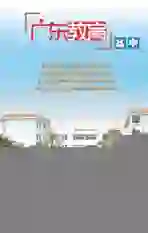小议动词不定式的特殊用法
2018-02-13封全龙
封全龙
我们在平时学习和复习备考时,除了理解动词不定式的基本常识和一般用法,还要掌握其特殊的用法。
一、不定式的否定式
动词不定式的否定形式,通常是在不定式符号的前面加上否定副词not或never等。如果是不带to的不定式,就直接在动词原形前面加上否定副词not或never等。
[例1]She pretended not _____(see)me when I passed by.
答案:to see
分析:因pretend to do sth可知填不定式,句中not to see是to see的否定形式。
[例2]Mr. Smith warned her daughter never ______(drive) after drinking.
答案:to drive
分析:由warn sb to do sth可知填不定式,句中never to drive是to drive的否定式。
[例3]Dinosaurs have completely diet out on the earth, never ______(find)again.
答案:to be found
分析:表示不如人意的结果用不定式,因Dinosaurs与find是被动关系,用不定式的被动式;句中never to be found是to be found的否定式。
[例4]They boys mother made him not ______(play) computer games at home all day long.
答案:play
分析:由make sb do sth可知填省略to的不定式,即play。句中not play是play的否定式。
二、不定式的省略
不定时的省略主要分为两种情况,一是不定式符号to后的动词部分的省略;二是不定式符号to的省略。
1. 不定式符号to后的动词部分的省略。
(1)当不定式在like, love, care, hope, wish, expect, refuse, mean, try, prefer等后作宾语时,有时为了避免与前文重复,可以把不定式中的动词部分省略,只保留不定式符号to。
[例5]—Would you like to go camping with us on the coming Sunday?
—Yes, Id like ______.
答案:to
分析:本句为省略句,补全句子为:Id like to go camping with you on the coming Sunday。
(2)当不定式在ask, tell, advise, allow, permit等后作宾补时,为了避免与前文重复,可以把不定式中的动词部分省略,只保留不定式符号to。
[例6]She wanted to come to our party but her parents didnt allow her______.
答案:to
分析:本句为省略句,补全句子为:but her parents didnt allow her to come to our party。
[例7]They boy wanted to ride in the street, but his mother told him not ______.
答案:to
分析:不定式not to是not to ride in the street的省略形式。
(3)當不定式在happy, glad, eager, anxious, able, willing, ready等形容词后作状语时,为了避免重复,可以把不定式中的动词部分省略,只保留不定式符号to。
[例8]I wanted to get in touch with her but I wasnt able ______.
答案:to
分析:本句为省略句,补全句子为:but I wasnt able to get in touch with her。
(4)当不定式符号to后的动词原形是have或be时,在省略句中通常要保留动词have或be,其后面的成分仍然可省略。
[例9]Mary is a fine singer as her mother used ______(be).
答案:to be
分析:本句为省略句,补全句子为:as her mother used to be a fine singer。
[例10]He did not come to my wedding party, but he ought ______(have).
答案:to have
分析:本句为省略句,补全句子为:but he ought to have come。
2. 不定式符号to的省略。
(1)当两个或多个不定式并列(常有and, or, but, than等并列连词)使用时,通常只在第一个不定式前加to,而后面的不定式之前的to常可以省略。
[例11]Shed like to take off her coat and ______(have) a rest.
答案:have
分析:and前后是两个并列的动词不定式,后面的不定式可以省略to。
但是如果并列的前后不定式具有對比含义时,第二个不定式to也不能省略。
[例12]I havent decided to stay at home or ______(travel) to Beijing this Summer holiday.
答案:to travel
分析:to stay at home与to travel to Beijing这两个并列的动词不定式有明显的对比含义,因此,第二个不定式to不能省略。
(2)在个别情况下,有的动词后面的动词不定式符号to可以省略,也可以保留。
[例13]She may go hiking with us this weekend if she likes______.
答案:(to)
分析:条件状语从句是省略句,句中的动词like后不定式符号to可以省略,也可以保留。补全句子为if she likes to go hiking with us this weekend。
[例14]What you have to do first is ______(clean) the classroom.
答案:(to)clean
分析:不定式作表语,用来解释主语中do的精确含义时,动词不定式符号to可以省略,也可以保留。
(3)动词不定式在感官动词feel, see, notice, watch, find, hear, listen to, observe和使役动词have, make后作宾语补足语时,动词不定式符号to要省略,如果这些动词用于被动语态,其后的动词不定式符号to就不能省略。
[例15]We often see the children ______(play) on the ground in our school.
答案:play
分析:由see sb do sth可知,填 play。
[例16]The boss was so cruel that he often made the boy ______(work)for twelve hours a day.
答案:work
分析:由make sb. do sth.可知,动词不定式作使役动词make的宾语补足语时,动词不定式符号to要省略。故填 work。
[例17]The boy felt very poor because he was made ______(work) for twelve hours a day by his boss.
答案:to work
分析:由be made to do sth可知,填to work。
三、there to be与 there being形式的用法区别
我们可以从以下三个方面对there to be和there being进行比较并加以区别。
1. 作介词的补足成分。
如果在for后,通常用there to be;若是在其它介词后,则要用there being。
[例18]It was unusual for there ______(be)so few people in the streets this evening.
答案:to be
分析:由there be前面的介词 for可知,应是there to be。
[例19]John was relying on there ______(be)another opportunity.
答案:being
分析:因there be前是介词on而不是for,应用there being。
2. 在expect, mean, want, like, prefer, hate, consider, intend等后作宾语时,通常用there to be结构。
[例20]They expect there ______(be)no argument about this.
答案:to be
分析:由there be前面的动词 expect可知,应是there to be。
[例21]I shall prefer there ______(be)a football game on the weekend.
答案:to be
分析:由there be前面的动词 prefer可知,应是there to be。
3. 作主语和状语,通常用there being结构。
[例22] There ______(be) a bus stop so near the house is a great advantage.
答案:being
分析:当there be结构作主语时,要用there being形式。
[例23] There ______(be)nothing else to do, we went home.
答案:being
分析:当there be结构作状语时,要用there being形式。
责任编辑 蒋小青
